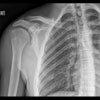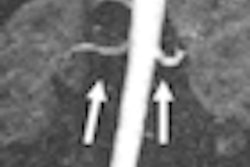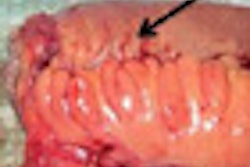
NEW YORK (Reuters Health), Apr 22 - A substantial minority of patients with antiphospholipid syndrome have subclinical coronary disease, French researchers report in a March 30 online paper in Arthritis and Rheumatism.
Dr. Thomas Papo of Paris-Diderot University and colleagues came to this conclusion after examining 27 patients and 81 controls (with similar cardiovascular risk factors) using late gadolinium enhancement imaging by cardiac magnetic resonance.
Eight patients (29.6%) had evidence of heart disease, including three (11.1%) with a typical pattern of myocardial infarction. The myocardial scar was not detected by electrocardiography or echocardiography.
In the control group, only three patients (3.7%) had late gadolinium enhancement. The relative risk of late gadolinium enhancement in the patients with antiphospholipid syndrome was 7.4.
There was no statistically significant association between classical coronary risk factors, or specific features of antiphospholipid syndrome, and late gadolinium enhancement.
However, say the investigators, the duration of the syndrome, presence of livedoid vasculitis, and levels of anti-beta2-GPI antibodies in serum tended to correlate with enhancement.
The prevalence of abnormalities in those studies is comparable to that in patients with well-known cardiovascular risk, such as diabetics and those with end-stage renal disease, the authors say.
They conclude that cardiac magnetic resonance imaging "reveals a significant and unexpectedly high prevalence of occult myocardial scar" in patients with antiphospholipid syndrome.
Commenting on the findings, Dr. Papo told Reuters Health by e-mail, "Such frequent myocardial involvement in ... asymptomatic patients raises many questions." Among these: "What lesions cause heart MRI abnormalities? Are they related to thrombotic myocardial microvasculopathy? Is there a specific/sizable clinical risk associated with the MRI images and how should it impact treatment?"
"A longitudinal prospective study," he concluded, "might help to address these issues."
By David Douglas
Arthritis Rheum 2010.
Last Updated: 2010-04-21 19:31:28 -0400 (Reuters Health)
Related Reading
MRI pegs cognitive dysfunction as noteworthy clinical feature in multisystem APS, January 3, 2007
Copyright © 2010 Reuters Limited. All rights reserved. Republication or redistribution of Reuters content, including by framing or similar means, is expressly prohibited without the prior written consent of Reuters. Reuters shall not be liable for any errors or delays in the content, or for any actions taken in reliance thereon. Reuters and the Reuters sphere logo are registered trademarks and trademarks of the Reuters group of companies around the world.


















